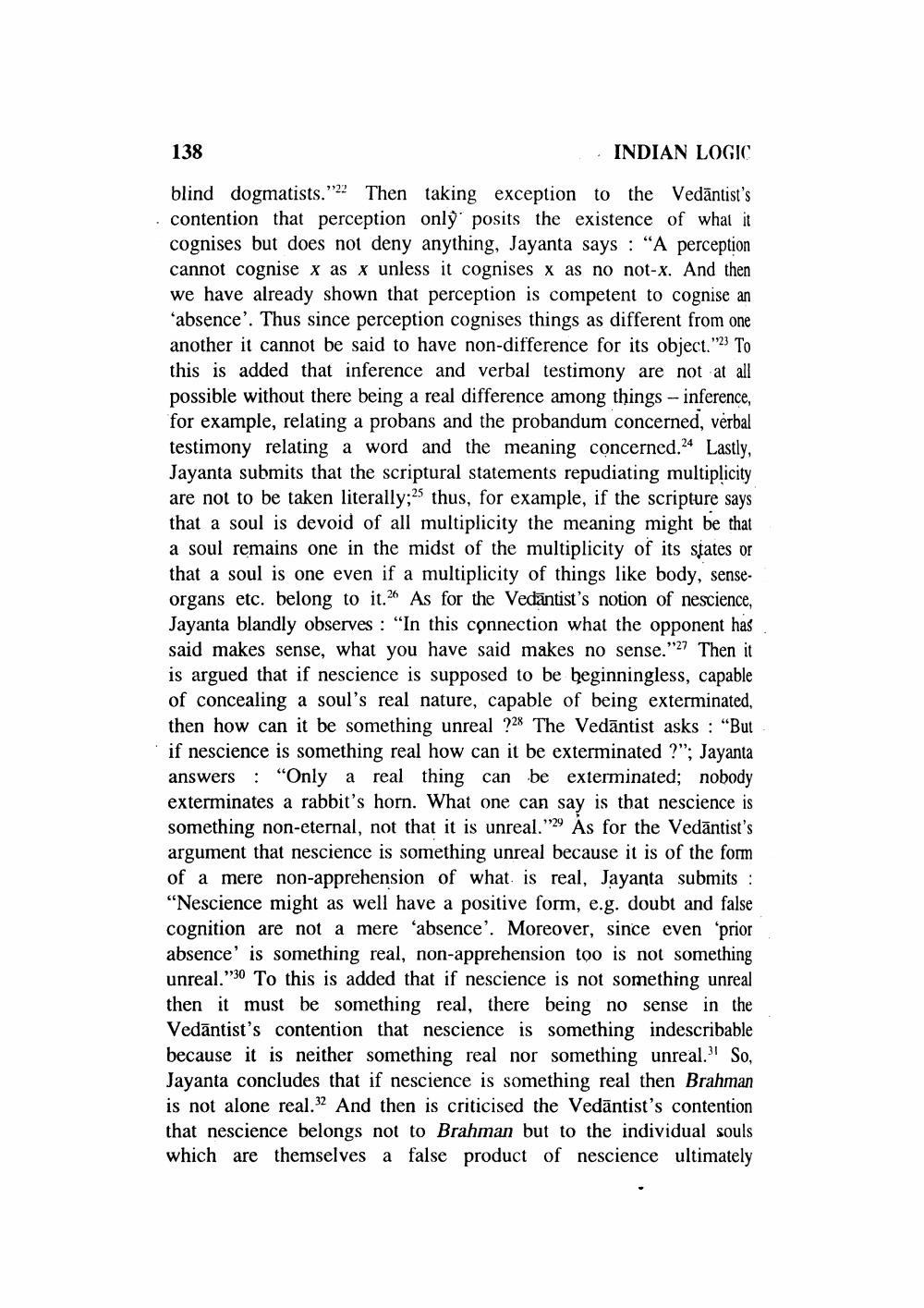________________
INDIAN LOGIC
blind dogmatists."2" Then taking exception to the Vedäntist's contention that perception only posits the existence of what it cognises but does not deny anything, Jayanta says: "A perception cannot cognise x as x unless it cognises x as no not-x. And then we have already shown that perception is competent to cognise an 'absence'. Thus since perception cognises things as different from one another it cannot be said to have non-difference for its object." To this is added that inference and verbal testimony are not at all possible without there being a real difference among things - inference, for example, relating a probans and the probandum concerned, verbal testimony relating a word and the meaning concerned. Lastly, Jayanta submits that the scriptural statements repudiating multiplicity are not to be taken literally; thus, for example, if the scripture says that a soul is devoid of all multiplicity the meaning might be that a soul remains one in the midst of the multiplicity of its states or that a soul is one even if a multiplicity of things like body, senseorgans etc. belong to it. As for the Vedantist's notion of nescience, Jayanta blandly observes: "In this connection what the opponent has said makes sense, what you have said makes no sense." Then it is argued that if nescience is supposed to be beginningless, capable of concealing a soul's real nature, capable of being exterminated, then how can it be something unreal? The Vedäntist asks: "But if nescience is something real how can it be exterminated ?"; Jayanta answers: "Only a real thing can be exterminated; nobody exterminates a rabbit's horn. What one can say is that nescience is something non-eternal, not that it is unreal." As for the Vedäntist's argument that nescience is something unreal because it is of the form of a mere non-apprehension of what is real, Jayanta submits: "Nescience might as well have a positive form, e.g. doubt and false cognition are not a mere 'absence'. Moreover, since even 'prior absence' is something real, non-apprehension too is not something unreal." To this is added that if nescience is not something unreal then it must be something real, there being no sense in the Vedäntist's contention that nescience is something indescribable because it is neither something real nor something unreal." So, Jayanta concludes that if nescience is something real then Brahman is not alone real." And then is criticised the Vedäntist's contention that nescience belongs not to Brahman but to the individual souls which are themselves a false product of nescience ultimately
138




